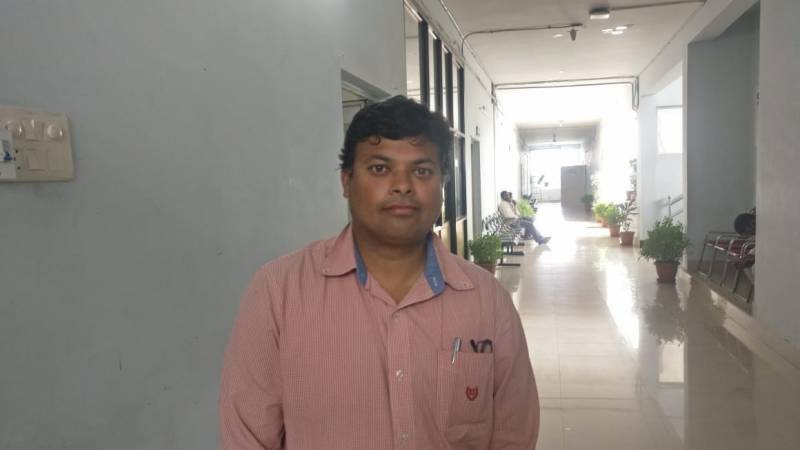Hyderabad man converts vegetable waste into organic compost
By Aiswarya Sriram
Hyderabad: The war on waste is vital for the health of the plant and composting in one of the aspects that can help win this war partly.
So, when Nandakishore Deva, an engineer by profession, returned to Hyderabad from Canada, he decided that he would do his bit for the earth.
With the help of the Greater Hyderabad Municipal Corporation (GHMC), Nandakishore setup an organic compost plant behind the Lingampally vegetable market. He says, “The Ligampally market, each day generates around four tons of waste. Of which two tones are used by the plant to make organic compost.”
To help him tackle the war on waste Nandakishore has a team of nine people from underprivileged backgrounds who help him in his mission.
Speaking to NewsMeter Nandakishore says, “Vegetable waste is collected and segregated by the workers, to ensure that there is no plastic and other waste mixed in it. The waste is powdered by running it through a machine. This powdered waste is then mixed with coconut shell powder and left for decomposing.” Soon a microbial process begins by a small white moth, which helps in the decomposing process. Every day, the heap is opened and mixed. Nandakishore says, “Due to the composting process, the temperatures at times in these heaps can touch 60 degree Celsius.”
The compost releases leachate, which is highly acidic and Nanadakishore releases this liquid into the gutter that flows near the market. The liquid can kill mosquitoes breeding in the gutter, he says. The final compost is ready in 15 to 20 days. For a single ton of garbage around 100kg of compost is produced.
At his other plant at Nallagandala, he makes compost out of kitchen waste.
His next plan is to sell this organic compost to farmers at a cheap rate. Nandakishore says, “While I was in Canada, I had seen a news clip on how Indian farmers have to struggle to sell their products and how a large amount of chemical fertilisers is used. I aim to decrease the dependency on chemical fertilisers.”
Hari Chandana Zonal Commissioner, GHMC says, “Setting up of such plants, helps in reducing a large quantity of precious waste that will end up in the dump yard. By promoting such organic composting plants, the GHMC has been able to reduce 8 to 10 tons of vegetable and fruit waste coming from different markets.”